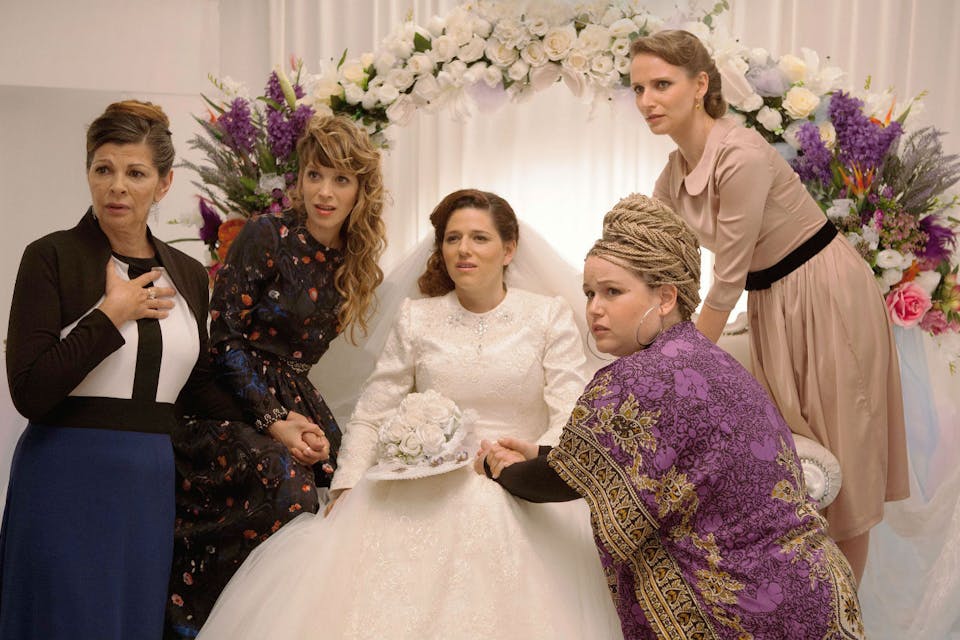
August 21, 2017
The Promise of Israel’s New Orthodox Cinema
By Benjamin KersteinIsraeli film used to be almost exclusively—and aggressively—secular. With the rise of the ultra-Orthodox director Rama Burshtein and others, that's changing.
In 1999, the acclaimed Israeli filmmaker Amos Gitai released Kadosh. Internationally screened and widely praised, it was one of the first Israeli films set entirely within the country’s ultra-Orthodox (ḥaredi) community. The story of a loving married couple forced to separate by the religious authorities, Kadosh was a corrosive, furious, and ultimately damning portrait of an authoritarian and repressive subculture. Its characters, while sometimes portrayed with sympathy, served as little more than weapons to drive home Gitai’s passionate opposition to ultra-Orthodox values and, by implication, their threat to the rest of Israeli society. “In Israel,” he said in an interview at the time, “Judaism has become a Church.” The reference was not complimentary.
For more than a decade, Kadosh stood as the most prominent and essentially the only widely seen portrayal of the ḥaredi world in Israeli cinema. In recent years, however, this situation has decisively changed. An early harbinger was Ushpizin (2004), set in a ḥasidic community in Jerusalem and appealing mainly to a religious but non-ḥaredi audience. (Ḥaredim generally refrain from attending movie theaters.) But the high point so far has been three major movies, each set in a different sub-section of Israel’s Orthodox or ultra-Orthodox communities, each devoted to letting members of its often insular enclaves tell their own stories, and each achieving notable success with audiences of all kinds in Israel and abroad.
Of the three films, perhaps the most widely seen has been Fill the Void (2012), an internationally acclaimed family drama that won a prize at the Venice Film Festival and seven Ophir prizes, Israel’s equivalent of the Oscars. It also marked the directorial debut of Rama Burshtein, a graduate of Israel’s Sam Spiegel Film and Television School and herself an ultra-Orthodox Jew.